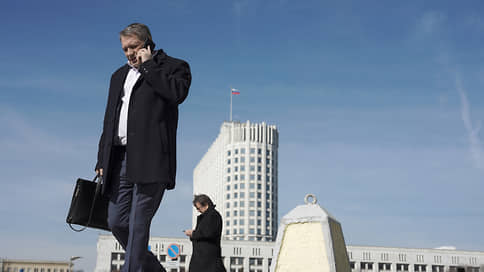The Ministry of Economy will bring together innovators and their customers in one register
[ad_1]

Against the backdrop of a sharp decline in the venture capital market in the Russian Federation, which suffered greatly in 2022 after the outbreak of hostilities in Ukraine, the White House intends to provide start-ups with not only financial, but also administrative support. Thus, by the end of 2023, the government plans to launch the information system “Register of Small Technology Companies (MTC)” – a platform that will bring together investors and start-ups. Companies from the “showcase of start-ups” will be able to apply for targeted state support measures, the portal will help investors choose an object for investing. The authorities hope that the registry will become a tool to popularize private venture financing in the country, although the need of industries for private investments so far significantly exceeds the interest in them.
As it became known to Kommersant, First Deputy Prime Minister Andrey Belousov recently held a meeting on the issue of supporting small technology companies – the project of the information system “Register of Small Technology Companies (MTC)” was presented at it. While the portal is operating in a limited test mode, it will become available to a wide range of people by the end of 2023. The registry should become a platform that brings together investors and startups (“showcase of startups”), the project is supervised by the Ministry of Economy. MTCs included in the register will be able to apply for targeted state support (in development), while investors will have access to dozens of key aggregate indicators of startups, data on their revenue, funds raised and needs. De facto, this proposal turns the state from a regulator into an organizer of venture deals – with an unclear, however, degree of responsibility for the results of this work.
According to Andrey Belousov, the project will allow investors to select start-ups, and for them to attract private financing. In his opinion, the registry is a necessary tool for developing the venture investment market, popularizing the sphere of private financing of technology projects and supporting innovation. The venture capital market in the Russian Federation suffered greatly after the outbreak of hostilities in Ukraine in February 2022. According to the analytical company Dsight, the number of transactions then fell by more than half, from 305 to 137, and the volume fell by 83%, from $2.53 billion to $418 million. At the same time, the volume of investments from representatives of the public sector in Russian projects decreased slightly compared to 2021 (from $87 million to $76 million) – that is, the outflow of private investors was even faster.
Venture state support plans are also conditioned by the need to develop and implement promising technologies. Due to the departure of Western technology-owning companies after the start of the Russian military operation in Ukraine and the subsequent sanctions, the “adaptation” of the Russian economy to this situation required the de facto creation of a market for high-tech developments from scratch. To this end, the White House also gave VEB.RF the “right to take risks” when investing in high-tech start-ups (see Kommersant on February 28). To involve small companies in the work on “technological sovereignty”, the Ministry of Economy has already developed a draft law “On the development of technology companies in the Russian Federation” (see “Kommersant” of May 31). The secretariat of Andrei Belousov previously explained that “the main function of such companies is the generation of new ideas in the field of technological innovation and their development”, specifying that such organizations can be focused both on embedding in the production and technological chains of large businesses, and on independent growth.
It is not known how much the innovation of the Ministry of Economy will be in demand: the economy’s need for private investments against the background of the reduction of state incentives for the economy due to the deficit budget is expanding, and geopolitical uncertainty is not conducive to investment. According to the experts of the CMASF and the Internet Initiatives Development Fund, the shock of 2022 created a chance to overcome the “openness” of the innovation system, in which Russian promising companies, having received funding at the initial stages within the country, continued their activities already abroad. But “the risk of segmentation is also growing: public money can help scale solutions within the country, but may not create conditions for the distribution of these solutions to related industries or to other countries,” the authors of the study presented yesterday “Russian ICT industry: responding to challenges” note.
[ad_2]
Source link






